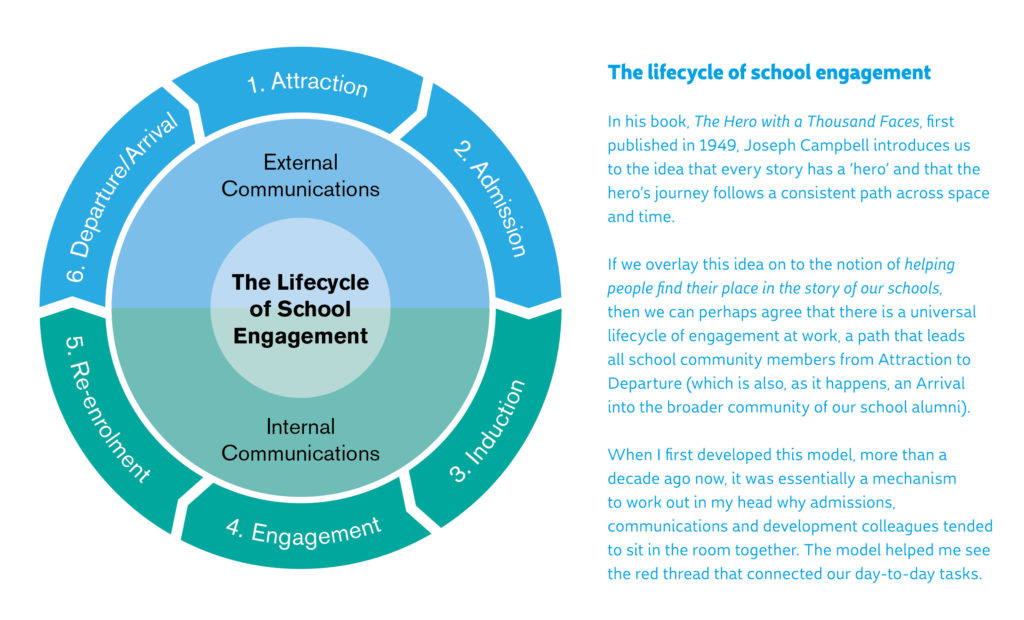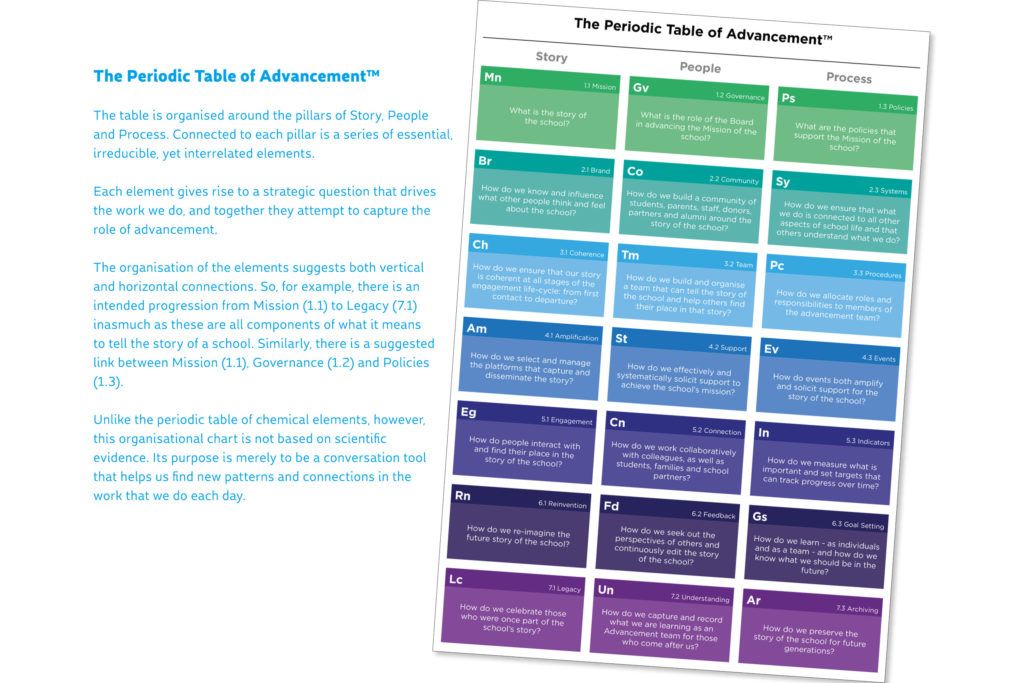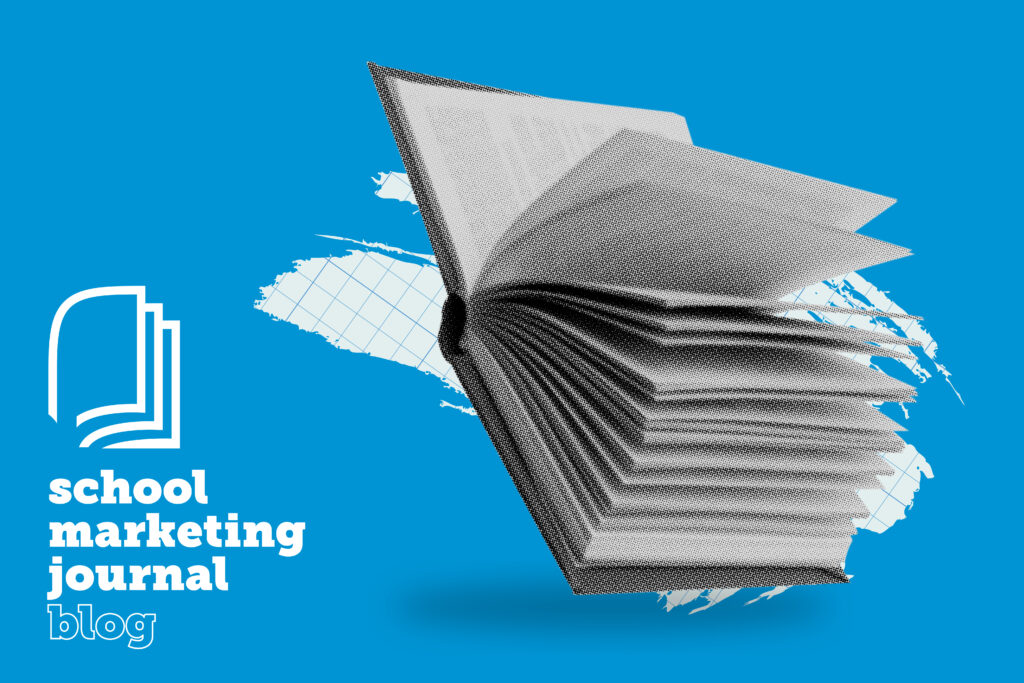“What do you do for a living?” Outside of the relatively small world of independent school administration, I’ve got used to that unmistakable look when I tell people that I work as a Director of Advancement. Even amongst members of my own school community, this professional self-description can often be as bewildering as saying that I am a Master Clay Modeller or Geospacial Analyst. Follow-up questions are often in short supply.
Back in the days when I was a primary school student, I recall wanting to become an archaeologist when I grew up. My colleagues wanted to be politicians, inventors, teachers or doctors. One of my friends (aged five) even wanted to become a hedgehog, but no-one wanted to become an advancement professional. So perhaps it’s not surprising that friends and colleagues often have little or no frame of reference when it comes to understanding the work we do.
Even for those of us on the inside, a definition of advancement as an organisational activity has been the subject of much discussion. Is advancement synonymous with school communications, development and fundraising? Should we add school admissions and enrolment management into the mix? And what about the increasing importance of organisational innovation in our schools? After all, it’s one thing keeping the wheels of the institution moving forward, but most of us would no doubt agree that we also need to start thinking about the ‘forward’ into which we are moving.
So, when people ask me what I do for a living, I’ve learned that it’s easier just to say that I am a Storyteller: I tell the story of my school and I help people find their place in that story. I think about what the story of the school is today, as well as what it might be tomorrow. I try to find new ways to connect this story to people at each stage of the lifecycle of school engagement (see diagram below), from ‘Attraction’ to ‘Departure’. And I manage, alongside members of my team, a set of processes that enables all of this to happen in an engaging and coherent way.

Welcome to The Periodic Table of Advancement™
Expanding this discussion beyond my own personal story, there is no doubt that over the past 60 years we have seen the evolution of the advancement function in educational institutions across the world.
Today, the world over, we are the people in schools who are responsible for brand and reputation management, creating a visual identity, PR and marketing, crisis communications, website development, publications, data privacy, admissions and enrolment management, alumni relations, fundraising, volunteer recruitment, events and much more besides. Sometimes these functions are filled by large teams. Sometimes they all fall on the shoulders of a single person.
Keeping on top of this apparently ever-expanding list of tasks and responsibilities is daunting, even for the most seasoned advancement professional. So, I found myself one day looking for an organising framework for each one of these individual tasks. And then, looking around for inspiration, I landed on the periodic table of chemical elements.
The genius of the periodic table of chemical elements, I realised, is the manner in which it brings order and pattern to the apparent haphazard and chaotic nature of the physical universe.
There is no genius in what happened next, but I started to wonder whether we could break advancement down to a series of essential, irreducible, yet related elements. Just as the atomic structure of the universe has been mapped and just as it has been determined that some elements lie in familial juxtaposition to one another, I realised that there was indeed a simple harmony, connection and pattern to all the work that we do as advancement professionals in schools.
This quickly led to The Periodic Table of Advancement™.

Imagining the future of advancement together
Within a few weeks of publication, I observed that colleagues in my school and beyond began to use the table in different ways. Some printed it out and put it on their wall as a talking aid with colleagues. Some used it to perform a team audit or identify priority areas for future growth. Some began to look for new connections between elements and started to do some ‘advancement alchemy’. So, it wasn’t long before we produced The Periodic Table of Advancement™ Game Edition as a tool to enable new kinds of conversations to happen.
It’s like entering the playground during recess. Our work-a-day world has changed because we’ve taken a moment to play; because we’ve taken a moment to have serious conversations that we wouldn’t normally be able to have.
To those of us who have spent time in the business, much of what I am saying might seem obvious. In talking to people, however, I’ve become increasingly convinced that a lot of schools are only just embarking upon this journey and it’s like they are opening a chemistry set for the first time.
Even for those of us who have got used to tried and tested formulae, the landscape of our work is forcing us to go back into the lab and redesign our craft; to have the courage to dismantle what worked in the past and — notwithstanding the occasional ‘explosion’ — experiment a little.
At the International School of Brussels, Belgium, we’ve begun to give time and space to this playful experimentation in the form of an innovation incubator for advancement. It’s a space where we can step away from our day-to-day work and grow an idea — play with it, test it, adapt it — until it’s ready to be integrated into the operational life of the school.
When signing up to Facebook a few years ago, we were all given an option to describe our relationship status. We had three options: married, single or it’s complicated. Today, when people ask me what I do for a living, I am still tempted to say, “it’s complicated”. If I think I have the time, however, at least now I am able to pull out a copy of The Periodic Table of Advancement™, point to the twenty-one elements and say, “It’s all these things … and probably more.”
Listen to this SMJ podcast with Dr David Willows.
Request your own copy of The Periodic Table of Advancement™ Game Edition by emailing david@yellowcar.io

Dr David Willows is the Director of Advancement at The International School of Brussels, Belgium, and the Co-founder and Strategic Director of [YELLOW CAR], helping schools stand out by intentionally designing the experience of school. For more information about [YELLOW CAR], visit yellowcar.io







